Explore the best places
Monuments in Santana
Casas Típicas de Santana
- heritage
Rua do Sacristão - Sítio do Serrado
9230-116, Santana
These houses have a triangular shape and are covered in thatch. Popularly known as little houses of Santana. Originally, these houses were composed of an attic, where agricultural products were stored, and a ground floor, generally a living area, which was divided into two parts. It is believed that these houses are traces of primitive buildings, made of wood and thatch, that were found throughout the island. As there is little hard stone in the region and the climate is cold in winter, this raw material was adopted, also enabling adaptation to the seasons, cool in summer and warm in …
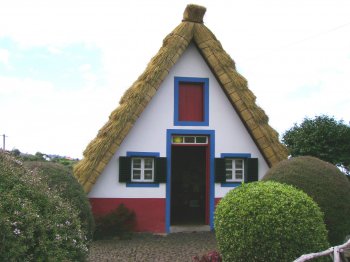
Moinho de Água de São Jorge
- heritage
Sítio do Pico, 156
9230-156, São Jorge
Powered by the waters of Levada do Rei, this recently restored water mill is more than three hundred years old and still grinds wheat, corn, barley and rye just as it was done in the past. It is the last water mill in Madeira and is kept in operation by the miller Lino Albino Mendonça and his wife, the miller Ana Rosa.
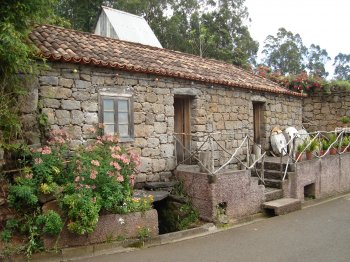
Fortim do Faial
- heritage
Tojal
9230-067, Faial
Built at the beginning of the 20th century, the Faial Fortress recreates a military battery, semicircular in plan, with ten English cannons that were fired during celebrations dedicated to Our Lady of the Nativity. It has a support house where the São Roque do Faial Parish Council exhibition room is located. From this point it is possible to observe a large stretch of the coast and, on clear days, Porto Santo, Serra da Penha d'Águia and the northern part of Ponta de São Lourenço.
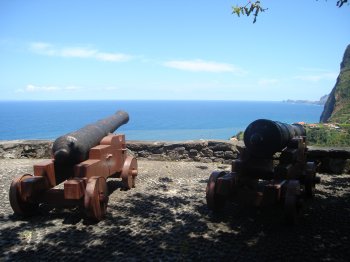
Igreja Matriz de São Jorge
- heritage
Rua Cardeal Dom Teodósio de Almeida
9230, São Jorge
A baroque church of the 17th century, composed of a sole nave and a lower and narrower main chapel, with a bell tower and a sacristy.
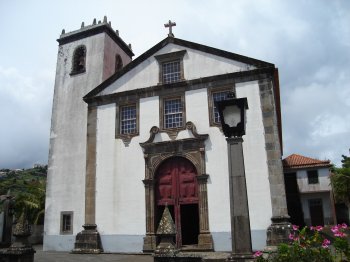
Capela de São Pedro
- heritage
Rua de São Pedro
9230, Parrobo
Small chapel, dated from the XVII century, with sober lines and mannerist portal and façade. It is surrounded by very peculiar and picturesque scenery.
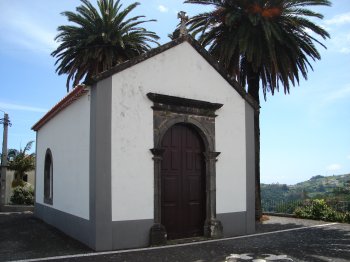
Fonte de Santa Ana
- heritage
Rua Santa Ana
9230, Santana
A small fountain with several faucets and a small structure on the top. It is located by the Parish House.
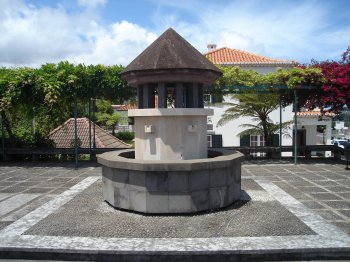
Capela de Nossa Senhora da Penha de França
- heritage
Fazenda
9230, Faial
A mannerist chapel with a longitudinal plan, carved on the rocks. It was built in the 17th century, and it is thought to having been a shelter for Canary isles slaves. One enters the chapel by a pedestrian path.